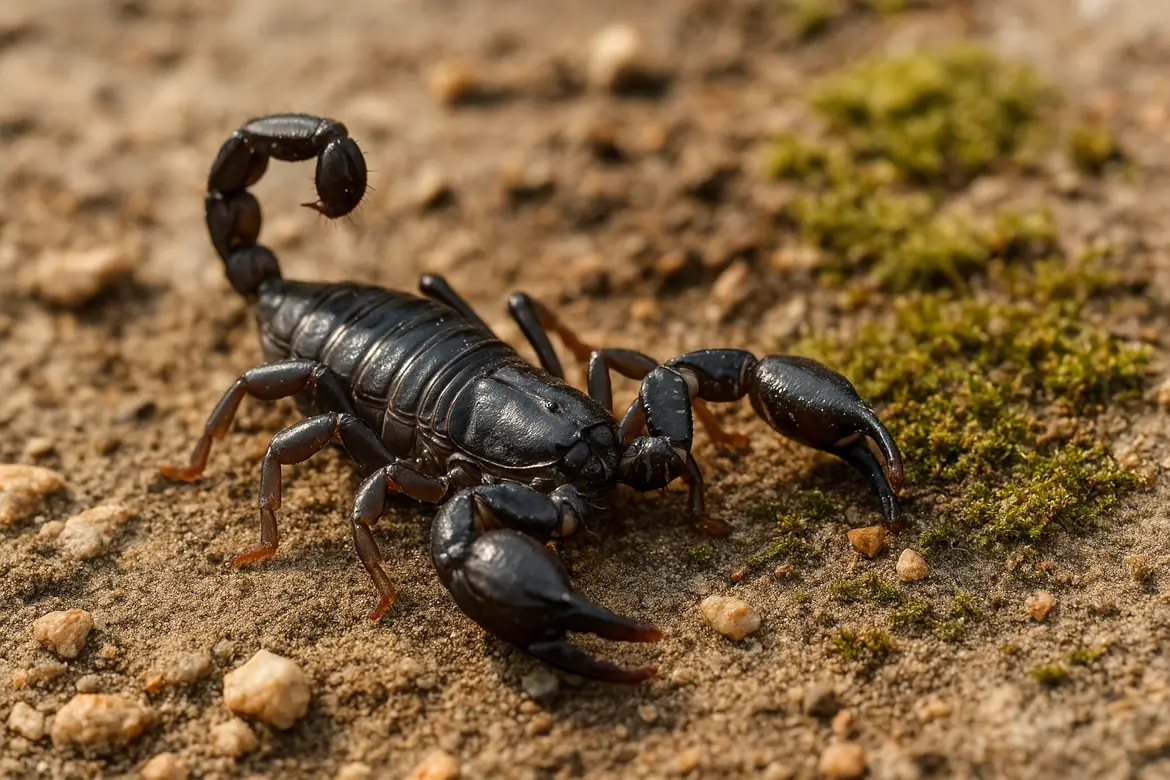Sicily, with its rich history, stunning landscapes, and crystal-clear waters, is generally a safe destination when it comes to wildlife. But like any Mediterranean region, it has a handful of creatures—on land and in the sea—that can pose a danger if provoked or accidentally encountered.
None are typically deadly, but a few can cause pain, allergic reactions, or, in rare cases, serious complications. Here’s a breakdown of the most notable animals to be aware of while exploring Sicily, the largest island in Italy.
Table of Contents
Land-Based Hazards
Asp Viper (Vipera Aspis)
The asp viper is the only venomous snake native to Sicily. It tends to live in rural and rocky areas, often hiding under stones or in dry grass. While bites are uncommon and rarely fatal, they can cause significant pain, swelling, and occasionally more severe symptoms such as nausea or difficulty breathing. Prompt medical attention is important, especially for children, older adults, or anyone with underlying health issues.
Mediterranean Black Widow (Latrodectus tredecimguttatus)
This spider, a European relative of the better-known American black widow, hides in barns, fields, and under rocks. Its venomous bite can lead to sharp pain, muscle cramps, and sweating. While it sounds dramatic, deaths are almost unheard of thanks to modern medical treatment. Still, a bite from a Mediterranean Black Widow should be taken seriously and examined by a doctor.
European Scorpions (e.g., Euscorpius italicus, Euscorpius alpha)
Scorpions in Sicily are generally not dangerous to humans. The most commonly found species are Euscorpius italicus and Euscorpius alpha, both small, dark-colored scorpions with relatively mild venom. Their sting is comparable to a wasp sting—painful and irritating, but not life-threatening. In rare cases, people may experience allergic reactions. These scorpions typically hide in rocky areas, under stones, inside old buildings, or in dry wood piles. Be cautious when reaching into dark or sheltered spots, especially in rural areas.
Wild Boar (Sus scrofa)
Wild boars are found mainly in Sicily’s forested regions, particularly in areas like the Nebrodi Mountains. The species present is Sus scrofa, the Eurasian wild boar. These animals are generally shy and avoid human contact, but they can become aggressive if they feel threatened, especially females with young. Although attacks are rare, wild boars are strong and fast, and they can inflict serious injuries if provoked. It’s best to observe them from a safe distance and avoid surprising them in the wild.
Wasps and Hornets (e.g., Vespula vulgaris, Vespa crabro)
During the warmer months, wasps and hornets are quite common in Sicily. The most common species include the Vespula vulgaris (common wasp) and Vespa crabro (European hornet). Their stings are painful and can be potentially dangerous for individuals with allergies. For those allergic to their venom, a sting can trigger a severe allergic reaction, such as anaphylaxis, which requires immediate medical attention. It’s essential to carry an epinephrine auto-injector (EpiPen) if you’re hiking or traveling in rural areas, especially during late spring and summer when these insects are most active.
Sea Creatures to Watch Out For
Blue Sharks and Other Sharks (e.g., Prionace glauca, Carcharodon carcharias)
Sharks are found in the Mediterranean Sea, including around Sicily, though attacks on humans are extremely rare. The most common species near the island include the Prionace glauca (blue shark) and, more occasionally, the Carcharodon carcharias (great white shark). While blue sharks are sometimes spotted offshore, especially near fishing areas, they typically do not approach swimmers. These sharks can be curious but are generally not aggressive toward humans. Great white sharks, although present in the Mediterranean, are even rarer around Sicily, and there’s little risk to swimmers.
Portuguese Man o’ War (Physalia physalis)
Though rare in Sicily, the Portuguese Man o’ War sometimes drifts in with changing sea currents. It resembles a jellyfish but is actually a siphonophore. Its tentacles deliver a painful sting that can cause intense skin irritation and, in rare cases, more serious symptoms such as difficulty breathing or allergic reactions. Immediate rinsing with vinegar or salt water is recommended.
Purple Jellyfish (Pelagia noctiluca)
Also known as the mauve stinger, this jellyfish is one of the more common hazards in Sicilian waters during the summer. Its sting can cause burning, swelling, and itchy rashes. While not dangerous to most people, stings can be very uncomfortable and occasionally cause allergic responses.
Scorpionfish (Scorpaena scrofa) and Weeverfish (Trachinus draco)
Both of these species are found near the seabed—scorpionfish often hide among rocks, while weeverfish bury themselves in sandy shallows. The Scorpaena scrofa (red scorpionfish) and Trachinus draco (greater weeverfish) both have venomous spines that can deliver a painful sting if stepped on or handled. The sting can cause intense pain, swelling, and sometimes even more severe symptoms. Wearing water shoes or sandals is a good precaution to avoid accidental stings when wading or diving in these areas.
Octopus (e.g., Octopus vulgaris, Eledone moschata)
Octopuses are intelligent, curious creatures but generally not dangerous to humans. The most common species found in Sicilian waters include Octopus vulgaris (common octopus) and Eledone moschata (musky octopus). These animals are non-aggressive and typically avoid human contact. While they may bite in self-defense if threatened, their bite is generally mild and poses no serious threat in Sicily. Octopuses are more likely to retreat into crevices or hide among rocks when disturbed.
Final Tips for Staying Safe in Sicily
If you’re exploring Sicily’s wild areas or swimming in its beautiful waters, the best rule is simple: look but don’t touch. Wear appropriate footwear, avoid disturbing wildlife, and stay aware of your surroundings. While the island has its share of natural hazards, serious encounters are rare, and with basic caution, your adventure in Sicily will be both safe and unforgettable.
